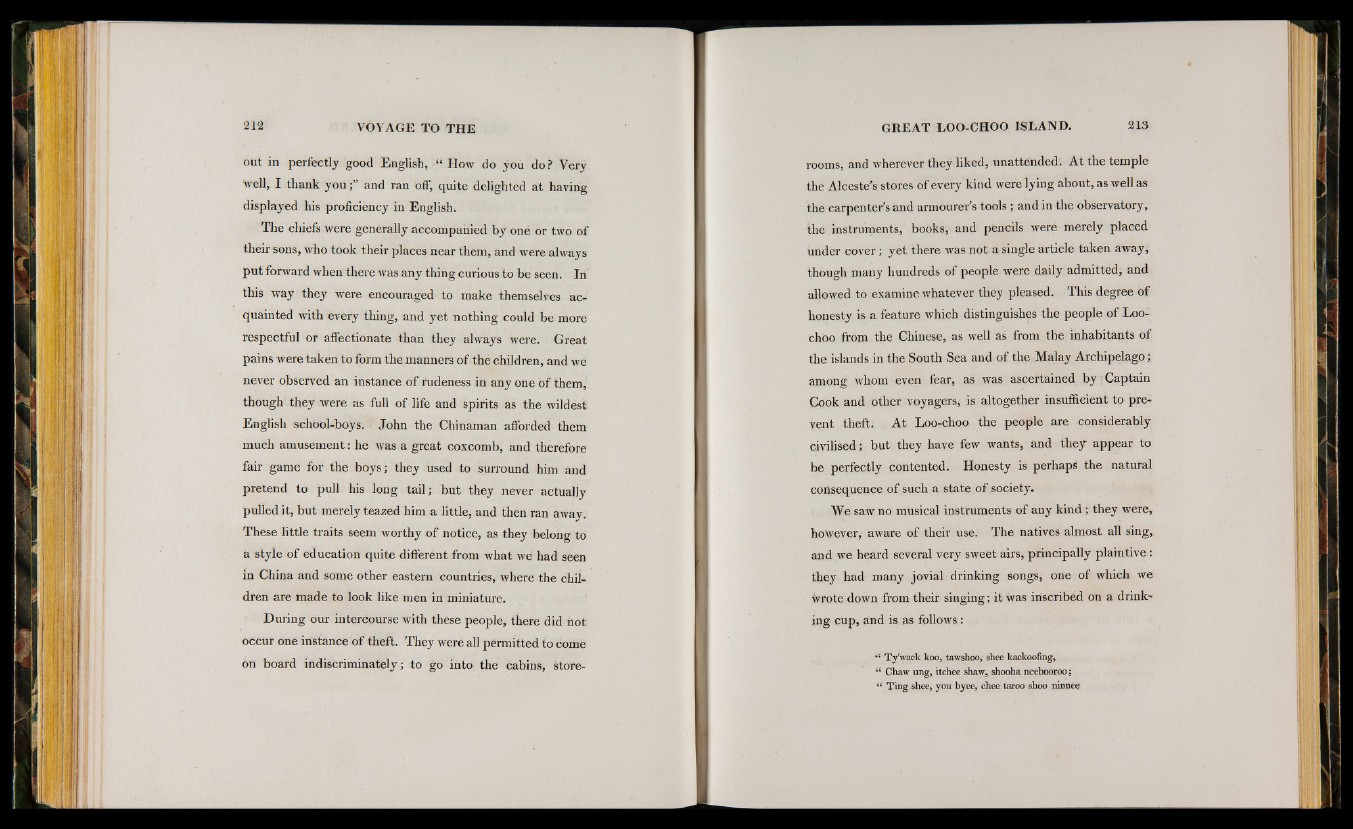
out in perfectly good English, “ How do you do? Very
well, I thank y o u ;” and ran off, quite delighted at having
displayed his proficiency in English.
The chiefs were generally accompanied by one or two of
their sons, who took their places near them, and were always
pu t forward when there was any thing curious to be seen. In
this way they were encouraged to make themselves acquainted
with every thing, and yet nothing could be more
respectful or affectionate than they always were. Great
pains were taken to form the manners of the children, and we
never observed an instance of rudeness in any one of them,
though they were as full of life and spirits as the wildest
English school-boys. John the Chinaman afforded them
much amusement: he was a great coxcomb, and therefore
fair game for the boys; they used to surround him and
pretend to pull his long tail; but they never actually
pulled it, but merely teazed him a little, and then ran away.
These little traits seem worthy of notice, as they belong to
a style of education quite different from what we had seen
in China and some other eastern countries, where' the children
are made to look like men in miniature.
During our intercourse with these people, there did not
occur one instance of theft. They were all permitted to come
on board indiscriminately; to go into the cabins, storerooms,
and wherever they liked, unattended. At the temple
the Alceste’s stores of every kind were lying about, as well as
the carpenter’s and armourer’s tools; and in the observatory,
the instruments, books, and pencils were merely placed
under cover; yet there was not a single article taken away,
though many hundreds of people were daily admitted, and
allowed to examine whatever they pleased. This degree of
honesty is a feature which distinguishes the people of Loo-
choo from the Chinese, as well as from the inhabitants of
the islands in the South Sea and of the Malay Archipelago;
among whom even fear, as was ascertained by Captain
Cook and other voyagers, is altogether insufficient to prevent
theft; At Loo-choo the people are considerably
civilised; but they have few wants, and they appear to
be perfectly contented. Honesty is perhaps the natural
consequence of such a state of society.
We saw no musical instruments of any k in d ; they were,
however, aware of their use. The natives almost all sing,
and we heard several very sweet airs, principally plaintive:
they had many jovial drinking songs, one of which we
wrote down from their singing; it was inscribed on a drink’
ing cup, and is as follows:
“ Ty'wack koo, tawshoo, shee kackoofing,
tc Chaw ung, itchee shaw, shooha neebooroo;
“ Ting shee, you byee, chee taroo shoo ninnee